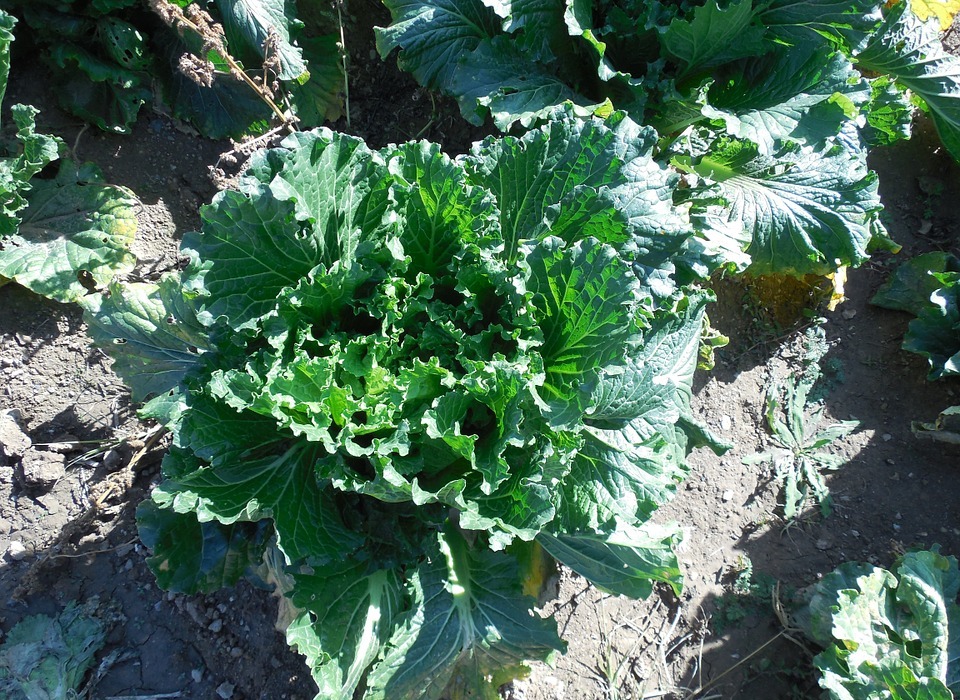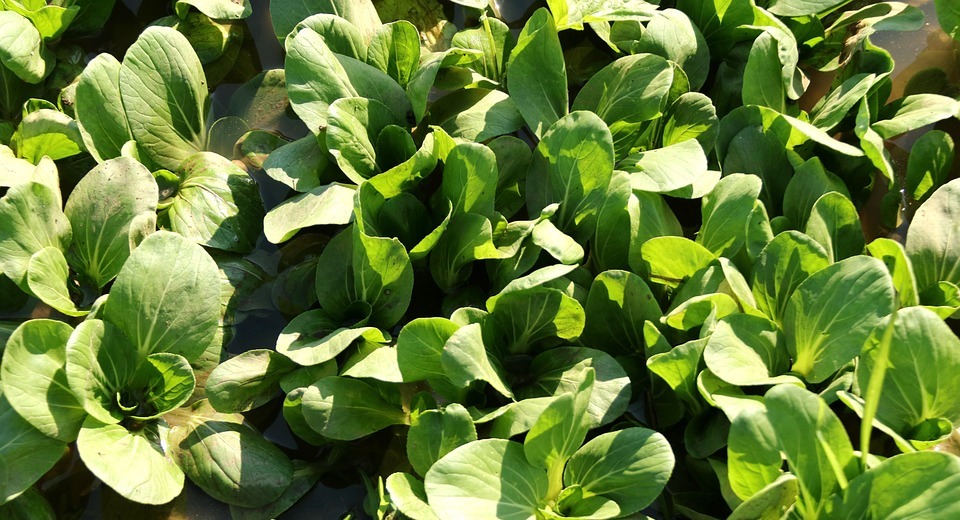This comprehensive guide explores the safety and nutritional benefits of bok choy for rabbits, providing essential information for rabbit owners seeking to enrich their furry companions' diets. We'll delve into the nutritional content of bok choy, discuss the potential risks and benefits of feeding it to rabbits, and offer valuable tips on how to safely incorporate this leafy green into your rabbit's diet. We will also address frequently asked questions, ensuring you have all the necessary knowledge to make informed decisions about your rabbit's well-being.
Part 1: Understanding Bok Choy

1.1: What is Bok Choy?
Bok choy, also known as Chinese cabbage, is a leafy green vegetable belonging to the Brassica family, which also includes broccoli, cauliflower, and kale. It is characterized by its thick, white stalks and broad, dark green leaves. Bok choy is a popular ingredient in many Asian cuisines, adding a distinct flavor and texture to dishes.
1.2: Nutritional Profile of Bok Choy
Bok choy is a nutritional powerhouse, packed with essential vitamins, minerals, and antioxidants.
- Vitamins: Bok choy is an excellent source of vitamin A (beta-carotene), vitamin C, vitamin K, and folate. These vitamins play vital roles in supporting immune function, vision, bone health, and cell growth.
- Minerals: This leafy green provides essential minerals such as potassium, calcium, magnesium, and iron. These minerals contribute to maintaining electrolyte balance, bone strength, muscle function, and red blood cell production.
- Antioxidants: Bok choy contains a wealth of antioxidants, including flavonoids, carotenoids, and vitamin C. Antioxidants help combat free radical damage, protecting cells from oxidative stress and reducing the risk of chronic diseases.
- Fiber: Bok choy is a good source of dietary fibre, which is crucial for maintaining a healthy digestive system in rabbits. It provides bulk to the diet, helps regulate bowel movements, and promotes the growth of beneficial bacteria in the gut.
Part 2: The Benefits of Bok Choy for Rabbits

2.1: Nutritional Enrichment
Adding bok choy to your rabbit's diet can provide a boost of essential nutrients, enhancing their overall health.
- Vitamins and Minerals: Bok choy offers a range of vitamins and minerals crucial for rabbit health, including vitamin A for vision and immune function, vitamin C for antioxidant support, vitamin K for blood clotting, and calcium for bone strength.
- Antioxidant Power: The antioxidants in bok choy help protect rabbits from cell damage and reduce the risk of chronic diseases.
- Digestive Health: The fiber in bok choy promotes healthy digestion, preventing constipation and supporting gut health. It also acts as a prebiotic, feeding the beneficial bacteria in the gut.
2.2: Dental Health
The crunchy texture of bok choy can help wear down your rabbit's teeth, contributing to their dental health.
- Continuous Growth: Rabbit teeth grow continuously, and chewing on fibrous foods like bok choy helps prevent overgrowth and dental problems.
- Dental Health Issues: Overgrown teeth can cause pain, difficulty eating, and even infection. Providing regular access to crunchy treats like bok choy can help maintain dental health.
Part 3: Potential Risks of Bok Choy for Rabbits
3.1: Oxalates
Bok choy contains oxalates, which can bind to calcium in the digestive tract and potentially interfere with calcium absorption. This can be a concern for rabbits prone to urinary issues.
- Urinary Issues: Oxalates can contribute to the formation of urinary stones, leading to pain, discomfort, and potential blockage of the urinary tract.
- Rabbits at Risk: Rabbits with a history of urinary issues or those prone to calcium oxalate stones should be monitored closely when given bok choy.
3.2: Goitrogens
Bok choy contains goitrogens, substances that can interfere with thyroid function. However, the amounts found in bok choy are generally considered safe for rabbits.
- Thyroid Function: Goitrogens can inhibit the production of thyroid hormones, which play a vital role in metabolism and growth.
- Moderation is Key: Feeding bok choy in moderation is essential to minimize the potential impact of goitrogens on thyroid function.
3.3: Gastrointestinal Issues
Sudden dietary changes, including the introduction of new foods like bok choy, can cause digestive upset in rabbits. It's crucial to introduce new foods gradually to avoid this issue.
- Gradual Introduction: Start by offering a small piece of bok choy and observe your rabbit for any signs of digestive upset. Gradually increase the amount over several days.
- Sensitive Digestive Systems: Rabbits have sensitive digestive systems, and abrupt changes in their diet can lead to diarrhea, constipation, or loss of appetite.
Part 4: Feeding Bok Choy to Rabbits Safely
4.1: Moderation is Key
As with any treat, moderation is essential when feeding bok choy to rabbits.
- Small Portions: Bok choy should be offered in small portions, as a supplement to their regular diet. Avoid overfeeding, as this can lead to digestive issues.
- Variety: Provide a variety of leafy greens, vegetables, and hay to ensure your rabbit receives a balanced diet and prevents nutritional deficiencies.
- Individual Needs: Consider your rabbit's age, weight, and health condition when deciding how much bok choy to offer. Consult your veterinarian for personalized recommendations.
4.2: Preparation and Serving
Proper preparation is crucial to ensure bok choy is safe for your rabbit.
- Thorough Washing: Always wash bok choy thoroughly under running water to remove any dirt, pesticides, or bacteria.
- Remove Stems and Roots: Remove the stems and roots of bok choy, as these are harder to digest for rabbits and can cause digestive problems.
- Chopping: Chop bok choy into bite-sized pieces to make it easier for your rabbit to eat.
4.3: Suitable Time for Feeding
Consider the best time to feed your rabbit bok choy to ensure maximum benefit and minimize potential risks.
- After Hay: Offer bok choy as a treat after your rabbit has consumed their hay, as this helps regulate their digestive system and prevents overeating.
- Avoid Evening Meals: Avoid feeding bok choy in the evening, as this can increase the risk of digestive upset and interfere with their sleep cycle.
Part 5: Monitoring Your Rabbit's Health
5.1: Signs of Digestive Issues
It's essential to monitor your rabbit for any signs of digestive upset after introducing bok choy.
- Diarrhea: Loose or watery stools can indicate digestive problems.
- Constipation: Hard, infrequent stools can also be a sign of digestive distress.
- Loss of Appetite: A decrease in appetite can signal a problem, particularly if accompanied by other symptoms.
- Changes in Behaviour: Look for changes in your rabbit's energy levels, activity, and general behaviour. These can be indicators of digestive distress or illness.
5.2: Consulting a Veterinarian
If you notice any signs of digestive issues in your rabbit after introducing bok choy, it's crucial to consult your veterinarian. They can assess the situation and provide appropriate advice.
- Prompt Attention: Rabbits are known for hiding illness, so it's essential to seek veterinary attention promptly if you suspect a problem.
- Early Intervention: Early intervention can improve the chances of a successful recovery and prevent serious complications.
Part 6: FAQs
6.1: Can baby rabbits eat bok choy?
While bok choy can be a nutritious treat for adult rabbits, it's best to avoid feeding it to baby rabbits under 8 weeks old. Their digestive systems are still developing, and they may not be able to handle the oxalates and goitrogens in bok choy.
6.2: How often can rabbits eat bok choy?
A small piece of bok choy once or twice a week is generally considered safe for adult rabbits. However, it's essential to monitor your rabbit's individual needs and adjust the frequency accordingly.
6.3: Can rabbits eat the leaves and stems of bok choy?
While the leaves of bok choy are generally safe, it's best to avoid feeding your rabbit the stems and roots, as these are harder to digest and can cause digestive problems.
6.4: Can rabbits eat bok choy raw?
Yes, rabbits can eat bok choy raw. However, it's important to wash it thoroughly and chop it into bite-sized pieces to make it easier for them to eat.
6.5: Can rabbits eat bok choy with other vegetables?
Yes, bok choy can be given as part of a mixed vegetable diet. However, ensure that the other vegetables are also safe for rabbits and offer them in moderation.
6.6: My rabbit has urinary issues. Should I avoid feeding them bok choy?
If your rabbit has a history of urinary issues, it's best to consult your veterinarian before feeding them bok choy. They can assess the potential risks and recommend appropriate alternatives.
6.7: What are some other safe and nutritious leafy greens for rabbits?
Besides bok choy, rabbits can enjoy a variety of other leafy greens, including:
- Lettuce: Romaine lettuce, red leaf lettuce, and green leaf lettuce are good choices. Avoid iceberg lettuce, as it is low in nutritional value.
- Spinach: Spinach is a nutritious option, but it should be given in moderation due to its high oxalate content.
- Kale: Kale is another excellent leafy green for rabbits, but it should also be given in moderation.
- Collard Greens: Collard greens are a good source of vitamins and minerals, but they should be introduced gradually.
- Parsley: Parsley is a safe and flavorful treat for rabbits.
- Dandelion Greens: Dandelion greens are a nutritious and readily available option, offering a good source of vitamins and minerals.
- Endive: Endive is a crunchy, slightly bitter leafy green that rabbits often enjoy.
6.8: Can I feed my rabbit bok choy everyday?
It's generally not recommended to feed your rabbit bok choy every day. While it's a nutritious treat, a varied diet with other leafy greens, vegetables, and hay is essential for their overall health.
Everyone is watching
-

Do Rabbits Lay Eggs? (The Surprising Truth)
OTHER TYPES OF PETSThis article will unravel the common misconception that rabbits lay eggs, exploring the fascinating world of r...
-

Can Rabbits Eat Grapes? A Guide to Safe Rabbit Treats
OTHER TYPES OF PETSThis comprehensive guide will explore the safety and suitability of grapes for rabbits, providing detailed inf...
-

What's a Group of Rabbits Called? (A Comprehensive Guide)
OTHER TYPES OF PETSThis article delves into the fascinating world of rabbits, exploring the various terms used to describe a grou...
-

Predators That Hunt Rabbits: A Guide to Natural Enemies
OTHER TYPES OF PETSI've always been fascinated by the circle of life, that delicate dance between predator and prey. Growing up ...
-

Are Rabbits Nocturnal Animals?
OTHER TYPES OF PETSThe question of whether rabbits are nocturnal animals is a fascinating one, with a surprisingly complex answer...
